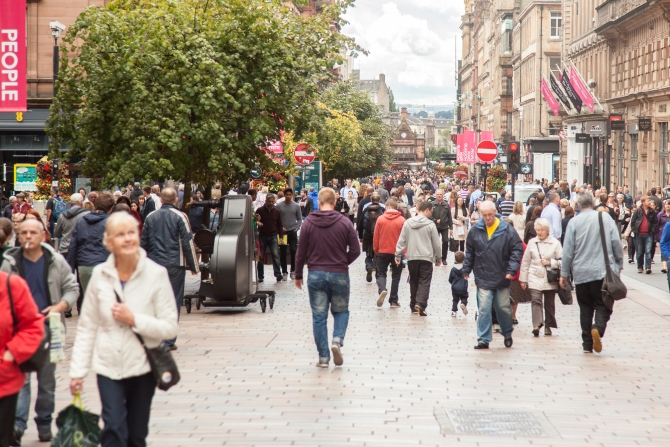The Scottish high street was one of the worst-hit victims of the recession, as the lower consumer spending power felt throughout the country was particularly pronounced north of the border. Yet fortunately, like most areas of the UK, Scotland is now beginning to recover from the worst financial crisis in decades, with the high street in particular reaping the benefits.

According to business advisors PwC, using data compiled by the Local Data Company, the first half of the year saw net retail closures in Scotland slow encouragingly.
Between the start of January and the end of June, 140 Scottish stores closed yet a further 133 new stores opened, leaving a net balance of minus 7 – an improvement upon the change of minus 8 recorded during the same period last year.
Scotland’s performance has therefore played a positive role in the overall UK shop closure rate, which PwC analysts believe has slowed significantly so far this year. It currently stands at around 16 store closures per day, which is certainly a step forward since the peak of 20 store closures per day recorded in the first half of 2012.
Yet unfortunately, the report also points out that “the gulf between openings and closures has widened” in the UK as a whole, as “withdrawal levels remain high alongside significantly fewer debuts.”
In fact, it claims that traditional high street staples such as fashion stores are barely expanding at all, and that coffee shops, betting shops and discounters are the main contributors to the fight against high vacancy rates within town centres.
PwC insolvency partner and retail specialist Mike Jervis says; “The overall drop in store openings may look surprising given UK growth prospects but at a macro level, it is most influenced by shifts in retail business models from purely high street to multichannel.
“The fallers reflect a spectrum of cases such as Abermarle & Bond where the estate had to be reduced to restore viability through to Blockbuster where the chain’s raison d’etre has become obsolete due to technology, which also continues to impact retail service businesses such as travel agents.
“The fashion sector is also on the back foot, due to too many similar formats and online trends.”
While vacancy rates have improved in the majority of areas within Scotland, the problems facing Scottish retailers’ southern counterparts – led by high business rates – continue to place a degree of pressure upon both independent and chain brands alike.
Retail industry experts, including the British Retail Consortium (BRC), believe that this tax upon retail properties’ rateable value is continuing to stifle growth at a time where businesses have other issues, such as the popularity of online shopping, to contend with.
Mr Jervis concludes; “I expect to see multiple retailers continue to approach openings in town centres very cautiously.
“This is likely to mean shorter term leases and more temporary pop up type formats particularly in secondary locations.”